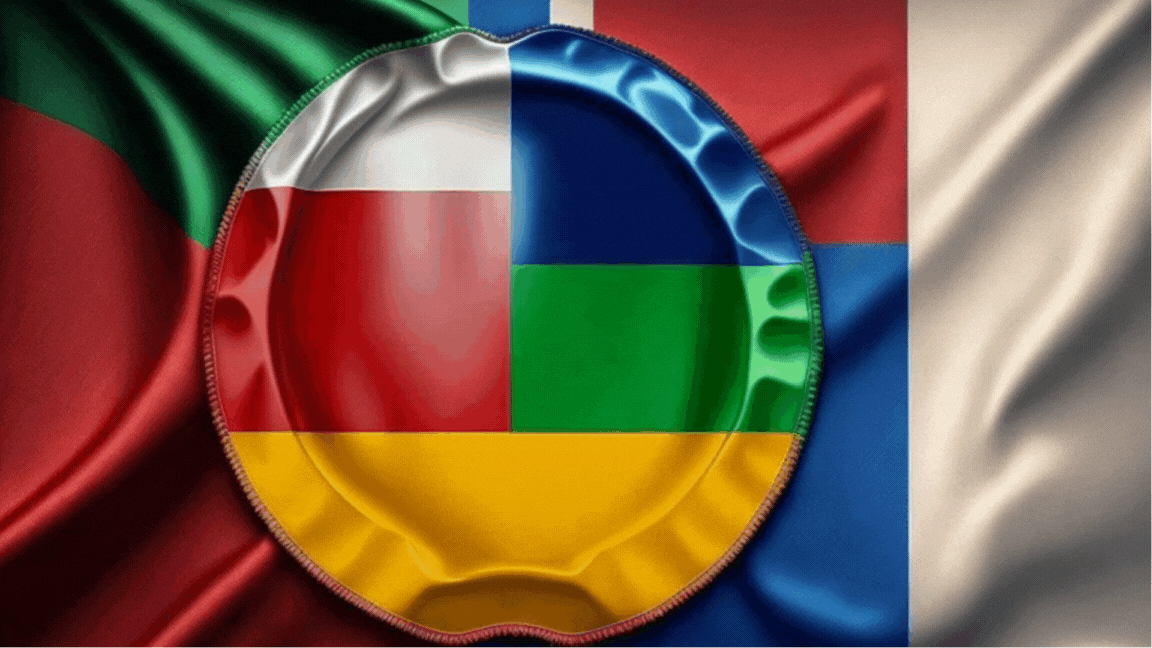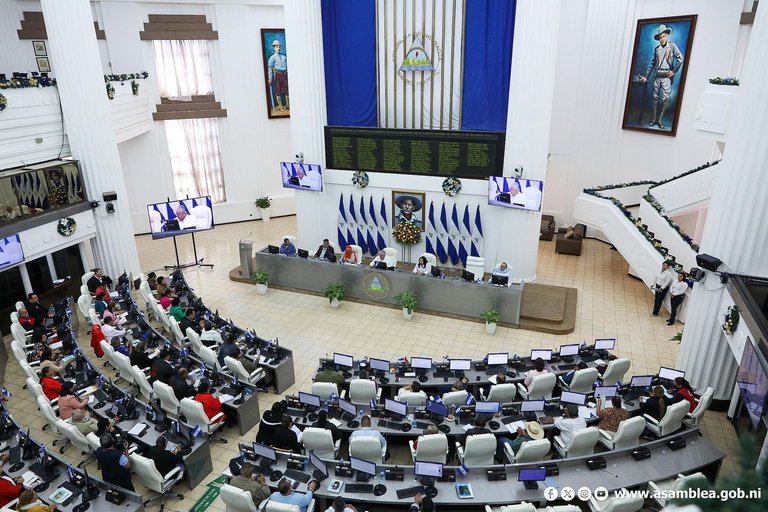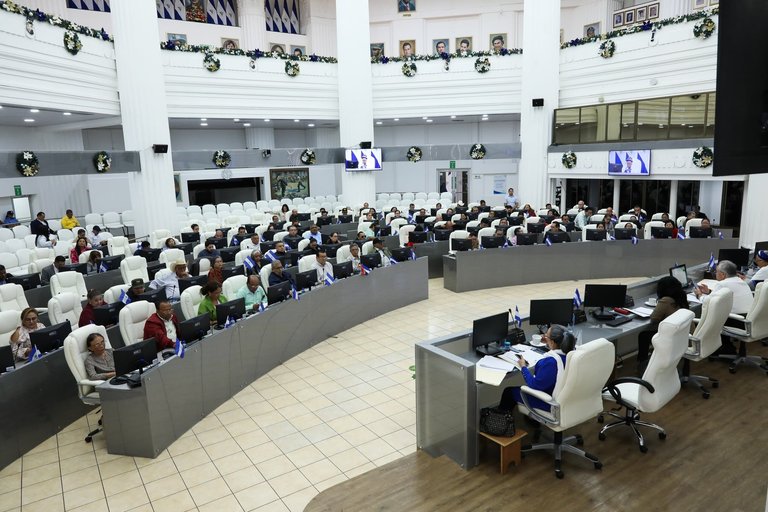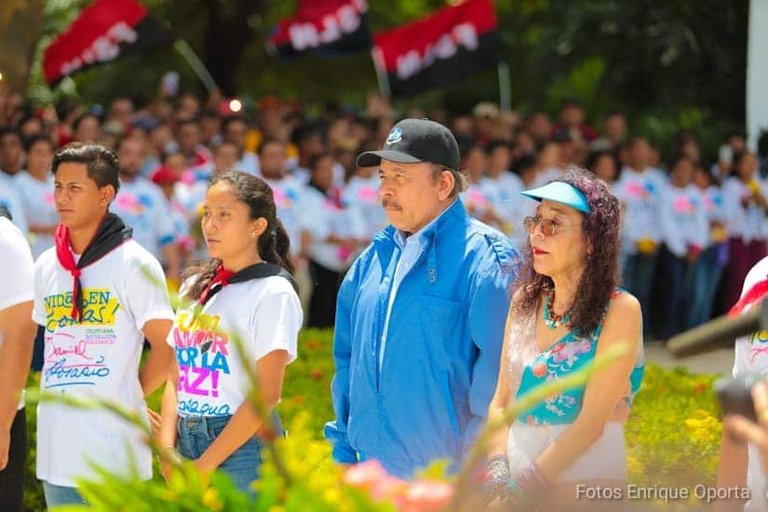
Nicaragua is once again in the news after the latest democratic bump of the government of Daniel Ortega, promoting a far-reaching constitutional reform that includes fundamental aspects of the structure of the state and other critical issues. The reform proposal has already been approved by the current legislature—in the Nicaraguan legal system, a legislature is the period in which the sessions of the National Assembly are held, beginning on January 9 and concluding on December 15 of each year—, and, according to the provisions of the current constitution, it must also be approved by the next one—a mere formality. The first thing that jumps out, besides the introduction of the so-called “inclusive language”, is the explicitly ideological character of the reform.
I emphasize that the political system's ideology and character are explicit because all constitutions obey a certain ideological corpus, a particular worldview, but these subjections are rarely expressed openly. Thus, for example, the preamble is modified to vindicate local historical figures such as the cacique Adiact, Friar Antonio de Valdivieso and Cleto Ordoñez, and other foreign and more contemporary ones such as Ernesto “Che” Guevara, Salvador Allende, Hugo Chávez, and Fidel Castro. In this same sense, “the red and black flag of the anti-imperialist struggle of General Augusto C. Sandino and the Sandinista Popular Revolution” is now one of the national symbols, taking away all practical value from the current legislation that regulates the characteristics and use of them.
The reform foresees major changes in the Fundamental Principles of the Magna Carta, considering “traitors to the homeland” those who attempt against the “inalienable rights of the people” contained in Article 1—independence, sovereignty, national self-determination, security, and peace. Ortega also seeks to give constitutional status to the controversial practice of withdrawing the nationality of those alleged “traitors”, and expelling them to Italy and Guatemala. Adherence to the Fundamental Principles must be included in the nature and purposes of civil society organizations and the statutes of the political parties. The rights of assembly, concentration, demonstration, and public mobilization will also be exercised following those principles.
 Source
SourceIn another key change, the term “political pluralism” disappears to make way for a less committed or specific one such as “cultural pluralism”, which in any case is limited. If the current Constitution states that “[the] political pluralism ensures the free organization and participation of all political parties in the electoral processes established in the Constitution and the laws; and their participation in the economic, political and social affairs of the country”, the new proposal conceptualizes that “[the] cultural and social pluralism ensures the organization and participation in all the electoral processes established in the Constitution by the political parties that comply with the Political Constitution and the laws”. Another “innovation” in the reform is to raise from the constitution the fight against poverty as something related to the “socialist ideals” on which the Nicaraguan State is based, which now, in addition, among other things, is “revolutionary”.
The declaration of Nicaragua as a “democratic Republic” will also disappear from the constitutional text. The founding power of the sovereign people will no longer be channeled through the different representative powers—which are no longer independent—, but the People will exercise the power of the State only through an omnipotent Presidency of the Republic, which 1) will be integrated by a male co-president and a female co-president—that is, right now and for the times to come: by Ortega and his wife Rosario Murillo—, 2) will lead the Government, and 3) coordinate the rest of the powers. The presidential term grows by one year. The tension that has characterized the relations between Ortega and the church is reflected in the modified article 14, where it is stated that “[under] the protection of religion, no person or organization may carry out activities that threaten public order” and also that “[religious] organizations must be kept free from all foreign control”.
 Source
SourceIn another serious cutback, “the right to know why and for what purpose [certain] information is held” about you in entities of a private or public nature is eliminated. After the reform of freedom of conscience and thought, there is no explicit recognition, while freedom of expression cannot imply the transgression of “the principles of security [and] peace established in the Political Constitution”. Torture is also no longer explicitly prohibited. The right to information also loses some constitutional basis, since the freedom to seek, receive, and disseminate ideas and information cannot violate the Fundamental Principles. The State, in addition, assumes the duty to monitor that the media does not disseminate “false news [...] threatening the rights of the people”, and does not rule out prior censorship or the seizure of printing presses and other media or equipment intended for the dissemination of thought. The Nicaraguan Army is placed directly under Ortega's command, loses its apolitical and non-partisan character and the conditions for employing it in internal order tasks are more flexible.
Economy: Ortega's best note?
For me, the happiest points of the controversial reform project are in its economic proposals, which distance “Nicaraguan socialism” from other Latin American socialist experiments. For example, it is defined that “[the] main function of the State in the economy is to promote productive and commercial activity, creating the conditions for the protagonists to carry out their economic, productive and labor activity [so that Nicaraguans and their families can progress]”. Article 99 states that “[the] economic initiative is free” and that “[the] exercise of economic activities corresponds primarily to individuals”. The reform bill also establishes certain rights as inalienable, such as access to basic services of electricity or drinking water, the latter being elevated to the rank of a human right. Education and health will become universally free, in the case of the former including higher education, and the case of the latter going beyond the level of vulnerable sectors.
 Source
SourceAnd this is all for our report today. I have referenced the sources dynamically in the text, and remember you can learn how and where to follow the LATAM trail news by reading my work here. Have a nice day.


Despite my hesitancy to comment on polities with which I am not personally familiar, I note the greater facility of arbitrary rule of a tyrant in the Nicaraguan constitutional reforms.
Thanks!
The political environment in Nicaragua is too flawed. It was already so in practice, and with Ortega's reform, some controversial dynamics will be law. A good part of the cuts or limits to freedom are established based on the rejection of foreign interference, a lawful and proper attitude of any State. Still, it is not a matter of there being a risk of abuse in its name, but of a fait accompli that will now have constitutional blessing. Thank you again for your feedback and for trying to be aware of Latam affairs.